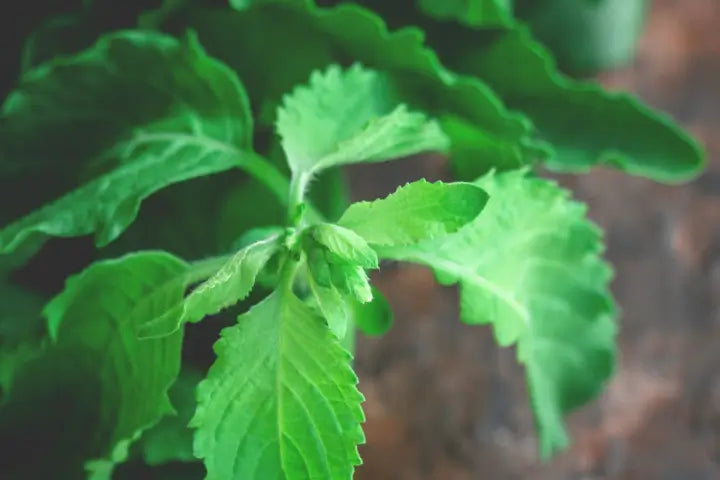Tulsi Powder Benefits: How Holy Basil Boosts Your Health Naturally

In recent years, the ancient herb known as holy basil has seen a remarkable resurgence. Available in forms such as dry tulsi leaves powder or dry tulsi powder, this botanical treasure—also called ocimum sanctum leaf powder or marketed as Organic Holy Basil Powder—has captured attention across wellness circles. From soothing teas to rejuvenating face masks, its versatility shines through. This guide presents a science-informed look at tulsi powder, exploring its natural advantages, health-forward uses, and practical tips. For casual readers and health enthusiasts alike, it offers accessible insight into harnessing this crown jewel of Ayurveda for everyday vitality and holistic balance.
Historical and Cultural Significance
Often dubbed the ‘Queen of Herbs,’ holy basil holds an illustrious pedigree in South Asian traditions. Referred to as Tulsi in English, this sacred plant has been cultivated in India for over 3,000 years. Ayurvedic texts, like the Charaka Samhita, detail its role in restoring harmony among the body’s elemental energies.
Beyond medicine, Tulsi leaves feature prominently in religious rites, temple offerings, and family altars. In many households, a small Tulsi plant stands as a symbol of purity, protection, and familial wellbeing—underscoring its deep cultural resonance across generations.
Nutrient Composition and Active Compounds
Tulsi powder unfolds its power through a blend of phytochemicals, vitamins, and minerals that act in synergy. Key constituents include:
| Compound | Type | Primary Function |
|---|---|---|
| Eugenol | Phenolic | Analgesic and antioxidant |
| Ursolic Acid | Terpenoid | Anti-inflammatory and metabolic support |
| Flavonoids (Orientin, Vicenin) | Antioxidant | Cellular protection and stress reduction |
In addition to these, ocimum sanctum leaf powder delivers essential micronutrients—such as vitamin C, vitamin A precursors, calcium, magnesium, and potassium. The combined action of these molecules fosters potent free-radical scavenging, support for enzymatic pathways, and balanced physiological responses.
Key Health Benefits
A. Supports Immune Function
Immune resilience hinges on balanced modulation rather than hyperactivation. Tulsi powder use taps into mechanisms that prime white blood cells without overstimulating inflammatory pathways. Eugenol and ursolic acid synergize to enhance macrophage activity, while certain flavonoids support the production of signaling molecules that direct pathogen defense.
Regular inclusion of Tulsi leaves in culinary preparations or herbal blends may translate to strengthened resistance against common pathogens—helping maintain health through seasonal challenges and daily exposures alike.
B. Manages Stress and Anxiety
Characterized as an adaptogen, Ocimum sanctum modulates the stress axis by interacting with the hypothalamic-pituitary-adrenal (HPA) circuit. Busy lifestyles often spike cortisol; adaptogenic compounds in tulsi powder help normalize this rise, promoting a calm yet alert state.
Across double-blind studies, participants consuming tulsi extracts reported measurable improvements in mood, mental clarity, and sleep quality—highlighting it’s no surprise that Tulsi powder benefits extend from mind to body coherence.
C. Promotes Respiratory Health
Holy basil’s mucilaginous constituents and anti-inflammatory terpenoids soothe irritated airways. For centuries, traditional practitioners have advocated tulsi to ease coughs and clear sinuses.
While symptomatic relief can feel immediate, ongoing use may support mucosal integrity, reducing sensitivity to allergens and environmental irritants. In fact, Tulsi tea benefits are celebrated for helping maintain clear breathing passages during seasonal transitions.
D. Aids Digestion and Gut Health
Digestion often benefits from a nudge in enzyme activity and gut motility. Compounds within tulsi powder—especially certain essential oils—stimulate bile flow and digestive secretions, promoting efficient breakdown of fats and proteins.
Moreover, preliminary research suggests a role in nurturing a balanced gut microbiome. The mild antimicrobial profile of tulsi helps curb unwanted microbial overgrowth, allowing beneficial strains to flourish and contribute to overall digestive comfort.
E. Provides Antioxidant and Anti-inflammatory Effects
Free radicals are by-products of normal metabolism, environmental pollutants, and stressors. Tulsi’s rich antioxidant repertoire—anchored by eugenol and flavonoids—effectively scavenges these reactive species, reducing cellular damage.
Concurrently, ursolic acid and rosmarinic acid temper low-grade inflammation, which is often linked to chronic conditions. By addressing both oxidative stress and inflammatory pathways, this herb promotes systemic balance and long-term wellbeing.
Practical Ways to Incorporate Tulsi Powder
Making tulsi part of daily habits is easier than it might seem. Here are creative ideas for how to use Tulsi powder:
- Mix a teaspoon into warm water or honey-infused Tulsi tea benefits concoctions for a soothing morning ritual.
- Blend tulsi powder use into smoothies alongside fruits, greens, and protein powders for a nutrient-packed boost.
- Stir Tulsi powder recipes into soups, stews, or sauces to lend an herby, slightly peppery twist.
- Combine tulsi root powder and oatmeal or yogurt to create energizing breakfast bowls.
- Craft topical pastes with tulsi powder, clay, and rosewater for brightening face masks.
Precautions and Potential Interactions
Although generally well-tolerated, certain populations should take note:
- Pregnant or nursing individuals should consult a healthcare professional before use.
- Those on blood-thinning medications or diabetes drugs need to monitor potential herb-drug interactions.
- Allergic reactions—such as skin rashes or gastrointestinal discomfort—can occur; any adverse signs warrant discontinuation and medical advice.
As with any botanical, quality matters. Seeking reputable sources ensures that the ocimum sanctum leaf powder is free from contaminants and adulterants.
Conclusion
Time-tested and backed by modern science, tulsi powder stands out as a multifaceted ally for health. From immune support and stress relief to respiratory comfort and digestive balance, the Tulsi benefits paint a compelling picture of its holistic potential. Encouragement abounds for those seeking natural wellness pathways to explore these green marvels.
Whether starting the day with a gentle cup of tulsi tea or adding a sprinkle to culinary creations, integration can feel both joyful and rewarding. Embrace the ritual of this sacred herb and discover how small habits can yield lasting vitality and resilience.
FAQs
What is tulsi powder used for?
Tulsi powder is used for enhancing immune function, managing stress, supporting respiratory health, aiding digestion, and providing antioxidant protection. Its adaptogenic and anti-inflammatory properties make it a versatile supplement for overall wellbeing.
